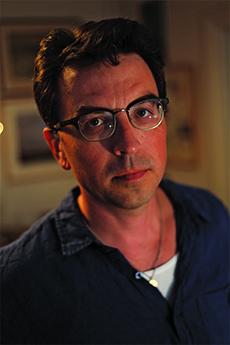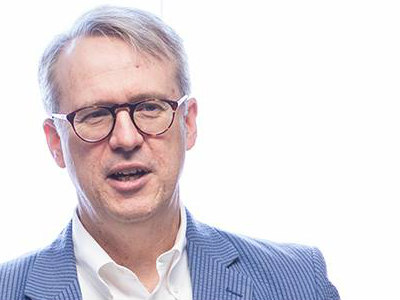This article below is posted with grateful permission from Dr. Scott Samuelson and Rhodes Magazine in which the article appeared in November, 2014.
The Atlantic
Traditionally, the liberal arts have been the privilege of an upper class. There are three big reasons for this. First, it befits the leisure time of an upper class to explore the higher goods of human life: to play Beethoven, to study botany, to read Aristotle, to go on an imagination-expanding tour of Italy. Second, because their birthright is to occupy leadership positions in politics and the marketplace, members of the aristocratic class require the skills to think for themselves. Whereas those in the lower classes are assessed exclusively on how well they meet various prescribed outcomes, those in the upper class must know how to evaluate outcomes and consider them against a horizon of values. Finally (and this reason generally goes unspoken), the goods of the liberal arts get coded as markers of privilege and prestige, so that the upper class can demarcate themselves clearly from those who must work in order to make their leisure and wealth possible.
“Why I Teach Plato to Plumbers:
Liberal Arts and the Humanities Aren’t Just for the Elite”
Scott Samuelson
In the democracy of ancient Athens and the republic of ancient Rome, freedom was only for the few. Slaves, servants, and women had to toil so that free men could cultivate their minds, participate in the government, and enjoy the highest goods of human life—in short, so they could learn and practice the liberal arts.
Our government takes inspiration from Athens and draws on the model of the Roman Republic, but we also inherit the Enlightenment ideal of freedom for all, even if our history has never quite lived up to it. My view—inspired by a long line of American thinkers going back to Thomas Jefferson—is that in a democratic republic the liberal arts should not be the exclusive privilege of the few. We should all have access to an education in thinking and judging for ourselves. The main goals of elementary and secondary education should center on cultivating the liberal arts, and citizens should have the opportunity to study the liberal arts in college without incurring onerous debt.
I’m not saying that we shouldn’t have opportunities for job training in our educational institutions. The reason that ancient Athenian and Roman citizens could devote themselves whole-heartedly to the liberal arts was precisely that the servile did the work necessary to sustain freedom. Part of the genius of the American educational system is that it mixes liberal and technical education. A just democracy requires that we all pitch in when it comes to the economy.
If anything, I’d like to see more real technical education in elementary and primary schools. There’s no reason that a person with a high school diploma shouldn’t be expected to know something and to do something. Furthermore, I’m grateful that our colleges and universities help their students get employable skills. But the dominant note of an education in a liberal democracy should be the cultivation of freedom, not of employability. We rightly want people to have gainful employment, but American citizens should do their work with a spirit of independence, creativity, and self-reliance.
The powerful trends in education right now are all about standardization, rubrics, passing tests, and compliance, which read as forms of servility rather than freedom. Insofar as the private goal of education is about jumping through the hoops necessary to get hired and the rationale for public education is about growing the economy, I worry that we’re striking a blasé Hobbesian bargain of giving up our freedom to big corporations and government agencies in return for the promise of security.
At the end of the Cold War, Francis Fukuyama famously declared that we’d reached “the end of history,” by which he meant that all peoples would eventually settle into liberal democracy. It’s not simply the authoritarian capitalism of China and the violent theocratic movements of the Middle East that challenge his thesis. It’s that we ourselves run the danger of becoming illiberal.
A century ago, when America was tilting toward inequality and empire, the great American philosopher William James said, “Nothing future is quite secure; states enough have inwardly rotted—and democracy as a whole may undergo self-poisoning. But, on the other hand, democracy is a kind of religion, and we are bound not to admit its failure. Faiths and utopias are the noblest exercise of human reason, and no one with a spark of reason in him will sit down fatalistically before the croaker’s picture. The best of us are filled with the contrary vision of a democracy stumbling through every error till its institutions glow with justice and its customs shine with beauty.”
In the decades following James’ stirring remarks, our country stumbled toward institutions and customs that glowed with a little more justice for workers, women, and black Americans. Twentieth-century America gave birth to a world-class public educational system that, for all its flaws, gave an astonishing number of people a distinctive liberal education. Unfortunately, for a few decades now we’ve been walking with misplaced confidence toward inequality and empire once again.
But we should refuse to “sit down fatalistically before the croaker’s picture.” As a new world order is taking shape, we have the opportunity to shine like never before as the country where, with the help of the liberal arts, citizens widely participate in the government, workers have a voice in an innovative economy, and the widest number of people enjoy the best of the human inheritance.
Scott Samuelson, the author of The Deepest Human Life: An Introduction to Philosophy for Everyone (University of Chicago Press, 2014), is giving the lecture “Suffering and Soul-Making: On the Deep Value of the Liberal Arts” on January 15, 2015, as part of Rhodes’ Communities in Conversation series.









